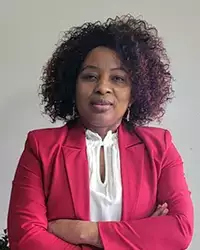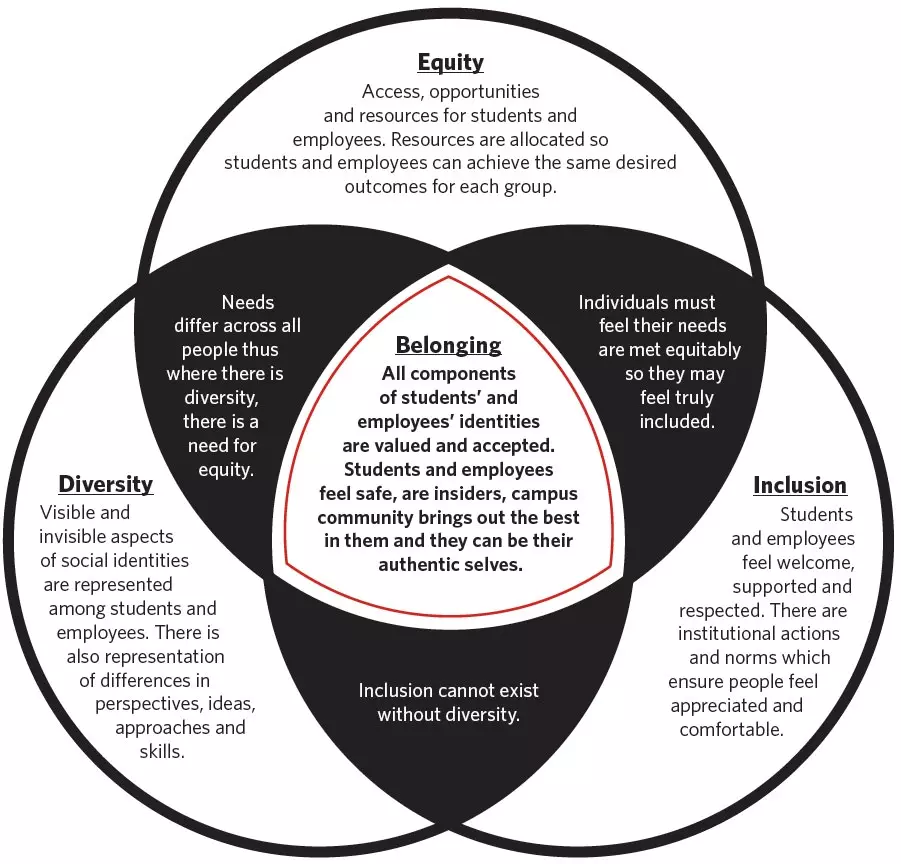Vice President of Equity and Inclusion & Equal Opportunity and Compliance Officer
The Office of Equity and Inclusion at SUNY Oneonta began in 2006, created as a recommendation to then-President Alan Donovan by the President’s Council on Diversity. Over the years it has adapted to the changing needs of the campus community and is now an umbrella unit for multiple institutional responsibilities that are dedicated to issues of diversity in their broadest sense.
The Office of Equity and Inclusion is led by the Vice President for Equity and Inclusion, Dr. Bernadette Tiapo, a member of the President’s Cabinet, the university's Equal Opportunity and Compliance Officer, and Title VI Coordinator. Dr. Tiapo oversees the Center for Racial Justice and Inclusive Excellence (CRJIE), and Gender and Sexuality Resource Center (GSRC) and Equity and Inclusion Initiatives and Operations.
Our hope is to provide advisement, consistency and support for diverse constituents, the whole of the campus community and for our institutional aspirations. Our work supports institutional core values that provide the foundation for all that SUNY Oneonta does, with a particular focus on student engagement and building an inclusive and welcoming community. We accomplish our goals by focusing on the needs of individual diverse community members, on the success of students from diverse communities, and on educating and supporting programming to build an inclusive community.
The Office of Equity and Inclusion is dedicated to supporting the equity, diversity and inclusion endeavors of SUNY Oneonta's academic divisions, administrative departments, and all offices. Important to our mission is our work with both individuals and groups in their efforts to feel included and have voice in shaping our community. We further strive to acknowledge, embrace and affirm a broad vision of diversity that recognizes emergent communities and their needs in our effort to be truly inclusive. The Office accomplishes these ideals through engaging in cross divisional collaborations, participating in and providing professional development opportunities to build consensus and understanding, and working tirelessly to create an inclusive civil working and learning campus community.
SUNY Oneonta values inclusivity. Our greatest strengths come from the people who make up our community and as such are empowered to create a meaningful impact within our campus and globally. We foster a culture that is inclusive, and support the individual expression of differing perspectives, ideas, and experiences so that students can grow intellectually, thrive socially, and live purposefully.
Institutions of higher education have the power to redress inequities and stratifications in our society. SUNY Oneonta embraces this power as opportunity and provides equitable access to affordable, transformative educational opportunities. We promote and support living and working in a diverse, equitable learning-centered community. SUNY Oneonta values all members of our community whose sense of belonging and ability to learn, thrive, and achieve are the measure of our collective success.
We acknowledge with respect the Kanienʼkehá:ka—the People of the Land of Flint—also known as the Mohawk Nation, on whose lands SUNY Oneonta now stands. The Mohawks are the Keepers of the Eastern Door of the Haudenosaunee—the People of the Longhouse—an indigenous confederacy that includes the Oneida, Onondaga, Cayuga, Seneca, and Tuscarora Nations. They and their relatives in the United States and Canada maintain stewardship of this land today.
This statement was developed in consultation with Darren Bonaparte, Director, Tribal Historic Preservation Office, St. Regis Mohawk Tribe.
Endorsed by University Senate, Spring 2024
Religious Holidays
Education Law (Section 224-a) states that any student who is unable, because of their religious beliefs, to attend classes on a particular day or days shall be excused from any examinations, study or work requirements.
Similarly, under New York State law, SUNY Oneonta is obligated to provide an equivalent opportunity for faculty to be absent from classes for religious observance. In such cases, faculty may notify students of alternate class arrangements, assignments, or cancellation. Such absences may not result in additional class sessions scheduled outside the existing time pattern for the course.

